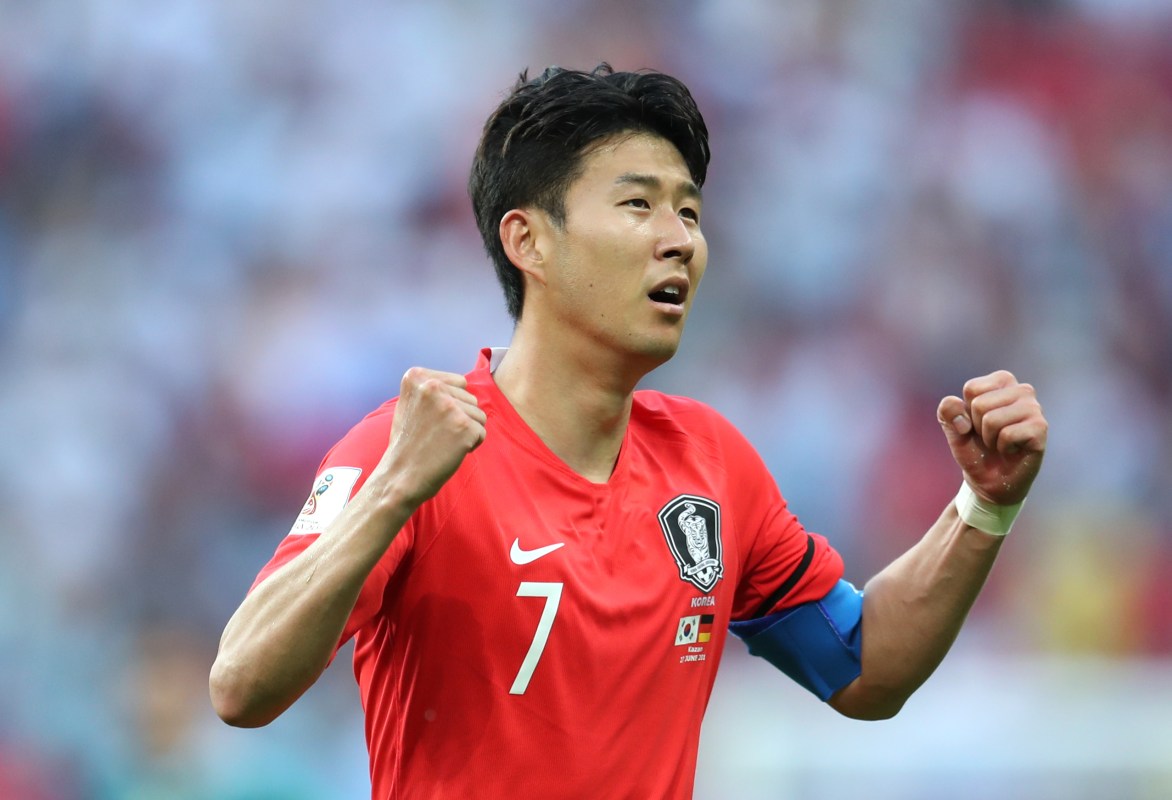The scene was heartbreaking for any sports fan. South Korean soccer star Son Heung-min is fighting to stop himself from crying in front of his president, Moon Jae-in. Though Moon keeps up a smile, Son breaks down.
South Korea’s loss to Mexico last week was a virtual knock-out blow to the Asian nation’s chances of getting out of the group stage this year’s World Cup in Russia.
“I really didn’t want to cry, but after I saw my teammates there, I couldn’t stop,” Son said, according to South Korea’s Yonhap News. “I feel sorry for them, especially those who were having their first World Cup. They did a great job.”
But for the 25-year-old, his next challenge could be even more daunting – winning his way out of mandatory military service to keep from interrupting a blossoming soccer career.
When he’s not playing for the national team, Son plays professionally for Tottenham Hotspur Football Club in the English Premier League. His play there has made him a national celebrity back home, but that matters little to the South Korean military, which compels all able-bodied men to serve nearly two years – soccer stars included.
What’s seen a prudent measure by a government that is still technically at war with North Korea has complicated the lives of South Korean celebrities in the past, including pop star G-Dragon, PGA golfer Bae Sang-moon and another well-known footballer, Park Chu-young.
Park’s case sparked a national controversy in 2012 when he used a European residency loophole to delay his military service for almost a decade. Park was reportedly widely shamed in South Korea for the move and later apologized “for all the trouble this caused, and for letting people down.”
Son and the South Korean team beat Germany in a stunning upset as Son made it 2-0 with a back-breaking strike during stoppage time. But the victory likely wouldn’t help Son out of his predicament. (It has helped a previous World Cup squad, but that was an exceptional case when South Korea’s team did surprisingly well when it co-hosted the World Cup with Japan in 2002.)
The Telegraph‘s John Duerden, who covers soccer in Asia, recently wrote that it’s the upcoming Asian Games in Indonesia starting in August and the 2020 Tokyo Olympics that really matter – a gold in the Asian Games or a medal in the Olympics would grant players the exemption.
Son may also have a residency loophole at his disposal, like Park, but Duerden wrote that after witnessing the backlash Park suffered, “few think [Son] will use it.”
The story was updated after South Korea defeated Germany.
Whether you’re looking to get into shape, or just get out of a funk, The Charge has got you covered. Sign up for our new wellness newsletter today.






















